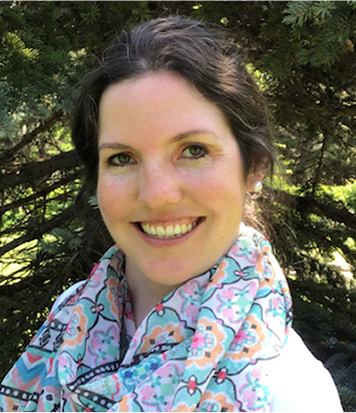SKIN Canada Newsletter: Fall 2024
- SkIN Canada News
- Featured profiles
- From the SkIN Canada Training Committee Hub
- News from Other Organizations
- Recent Publications by SkIN Canada Members
June 22-23, 2025 in Halifax
Save the Date: Canadian Skin Research Conference

SkIN Canada Member Awarded CIHR Project Grant
Congratulations to Boris Hinz (PhD) on being awarded a CIHR Project Grant (2024-2029)! Title: Mechanical Imprinting of Epigenetic Memory in Therapeutic Mesenchymal Stromal Cells (Role: Principal Applicant)

Dana Gies, MBA, CPA, CMA: Responsible for overseeing all facets of Canadian Skin Patient Alliance (CSPA) Dana drives the mission, fundraising, operations, and engagement along with the board of directors. Dana brings over 20 years of experience in non-profit and higher education sectors and has taught Business and Management courses part-time, holds an MBA from Wilfrid Laurier University, an Honors Bachelor of Commerce (French Minor) from McMaster University and a CPA Designation.
As an Inclusion Champion in previous roles, Dana has also taught Diversity, Equity and Inclusion (DEI) courses and is dedicated to advocating and aligning her work around the values of DEI and accessibility.
Personally, Dana has been volunteering within the non-profit space beginning in her youth as a camp counsellor, then with big sisters and habitat for humanity. This resolve stuck with her into her adult and professional career where she has been a volunteer Executive Board Member with Cystic Fibrosis Canada (CF) for more than 20 years and instrumental member of the planning committee for the annual Walk to Cure CF.
Dana looks forward to collaborating and advocating to improve the lives of people affected by skin, hair and nail conditions. Dana can be reached at executivedirector@canadianskin.ca.
Early Career Investigator
Dr. Cait Champion, MD MSc FRCSC CIP

Dr. Cait Champion, MD MSc FRCSC CIP is a rural General Surgeon in Parry Sound, ON, and Assistant Professor at the Northern Ontario School of Medicine (NOSM) University where she has been working since 2019 following completion of her General Surgery residency and Clinician Investigator program (MSc Health Systems) training at the University of Ottawa. She is passionate about rural access to care and believes in the power of collaboration to transform clinical care, education and research in rural communities. She is a founding member of the Canadian Frostbite Care Network, launched in October 2024, and holds leadership roles in education for surgical trainees and practicing surgeons through NOSM University and the Canadian Association of General Surgery (CAGS). When not at work she can be found reading books, playing at the park, and enjoying the outdoors with her family.
Team Development Award
Team Development Award Recipients - Dr. Raed Alhusayen (2023 Recipient)

Dr. Raed Alhusayen is a Clinician Investigator and Associate Professor in the Division of Dermatology at the University of Toronto, as well as an Associate Scientist at Sunnybrook Research Institute. He serves as a Staff Physician at Sunnybrook Health Sciences Centre and Women’s College Hospital, where he runs subspecialty HS clinics. Dr. Alhusayen’s clinical research focuses on HS comorbidities, the efficacy of HS therapies, and clinical trials. A founding member and past president of the Canadian HS Foundation, he has published extensively and contributed to major HS guidelines.
Team Development Award Project Title: Hidradenitis Suppurativa in Diverse Patient Populations: Multicenter Pilot Project to Assess Disease Characteristics and Access to Biologic Therapy.
Lay Summary: Hidradenitis suppurativa (HS) is a painful and debilitating skin condition that affects many people around the world. We aim to establish a registry for HS patients across Canada, which will help us to understand more about the disease and how to improve treatment options. We will collect data on the characteristics of the disease, including its severity and duration, as well as information about any other medical conditions that patients may have. We will also focus on skin of color patients to ensure that they are adequately represented in our research. In addition, we will also investigate the barriers and facilitators to accessing biologic therapy, including adalimumab, for HS patients in Canada. We will collect data on factors such as geographic location, insurance coverage, and socioeconomic status to identify disparities in access and develop strategies to improve access for all HS patients,especially those who are underrepresented in clinical trials. Finally, we will investigate the real-world response to adalimumab, a medication commonly used to treat HS, in skin of color patients. We will recruit patients who have recently started using adalimumab and collect data on their disease characteristics, treatment response, and adverse events. We will analyze this data to understand the factors that contribute to a favorable or unfavorable response to the medication, particularly among skin of color patients. By conducting this research, we hope to improve our understanding of HS and treatment effectiveness especially those from diverse backgrounds.
Scientific Summary: Hidradenitis suppurativa (HS) is a chronic inflammatory skin disease characterized by painful, recurrent nodules, and abscesses that occur in skin folds, such as the armpits and groin. HS affects individuals of all races and ethnicities, but skin of color patients are underrepresented in clinical trials, leading to a lack of understanding of disease characteristics and treatment outcomes in this population. This study aims to establish a multicenter registry for HS patients across Canada, including patients of any skin type, but with a focus on skin of color patients to ensure adequate representation. Data will be collected on disease characteristics, including disease severity, location, onset, and duration, as well as comorbidities and medication history. The study will work with registry partners to develop a standardized protocol for data collection and management to ensure consistency across the sites. The development of common variables, including demographics, clinical characteristics, and treatment outcomes, will be used to collect data across the sites. In addition, the study will investigate access to biologic therapy, such as adalimumab, for HS patients in Canada, with a focus on skin of color patients. Data will be collected on the barriers and facilitators to accessing biologic therapy, including geographic location, insurance coverage, and socioeconomic status. The analysis will identify disparities in access and develop strategies to improve access for all HS patients, especially those underrepresented in clinical trials. Finally, the study will conduct a nested cohort study, with a 2:1 ratio for skin of color vs white patients, to investigate the real-world response to adalimumab in skin of color patients. The study will collect data on disease characteristics, treatment response, and adverse events. The investigation will identify factors that contribute to a favorable or unfavorable response to Adalimumab in skin of color patients, with the aim of improving treatment outcomes and developing personalized treatment plans for HS patients. Overall, this study will provide a comprehensive understanding of HS characteristics, treatment outcomes, and access to biologic therapy in skin of color patients. The study’s Hidradenitis suppurativa (HS) is a painful and debilitating skin condition that affects many people around the world. We aim to establish a registry for HS patients across Canada, which will help us to understand more about the disease and how to improve treatment options. We will collect data on the characteristics of the disease, including its severity and duration, as well as information about any other medical conditions that patients may have. We will also focus on skin of color patients to ensure that they are adequately represented in our research. In addition, we will also investigate the barriers and facilitators to accessing biologic therapy, including adalimumab, for HS patients in Canada. We will collect data on factors such as geographic location, insurance coverage, and socioeconomic status to identify disparities in access and develop strategies to improve access for all HS patients, especially those who are underrepresented in clinical trials. Finally, we will investigate the real-world response to adalimumab, a medication commonly used to treat HS, in skin of color patients. We will recruit patients who have recently started using adalimumab and collect data on their disease characteristics, treatment response, and adverse events. We will analyze this data to understand the factors that contribute to a favorable or unfavorable response to the medication, particularly among skin of color patients. By conducting this research, we hope to improve our understanding of HS and treatment effectiveness especially those from diverse backgrounds.
Team Development Award
Team Development Award Recipients - Dr. Carolyn Jack (2023 Recipient)

Dr. Carolyn Jack (MDCM, PhD, FRCPC) is an Assistant Professor, Dermatology, at McGill University, and a Scientist in the Infectious Diseases and Immunity in Global Health Program of the Research Institute of the McGill University Health Centre (MUHC). In 2018, Dr. Jack founded the MUHC Center of Excellence for Atopic Dermatitis, the first tertiary care centre in Canada dedicated to adult atopic dermatitis. Dr. Jack’s clinic has been recognized both nationally and internationally for its patient engagement platform, and she is the co-founder of EczemaQ, an award-winning mobile health application. As an FRQS Clinical Research Scholar, her research goal is to identify disease-modifying interventions in chronic atopic dermatitis.
Team Development Award Project Title: Canadian Patient-Oriented Dermatitis Database and Biobank (C-POD).
Lay Abstract: Atopic dermatitis (AD), also known as atopic eczema, is the most common and most burdensome skin disorder in the world and is strongly connected to asthma and allergies. Suffering with AD throughout life is now known to be common, and adults often have more severe skin inflammation and more changes to blood immune cells. The reasons why are unclear, but one-tenth of adults develop AD late in life, so environmental factors may play a large role. One of the best-known culprits is the bacteria Staphylococcus aureus (staph). Commonly found in our noses, staph can cause serious infections; in AD skin, it is usually present. More staph growth associates with more severe disease and coincides with AD flares. We don’t understand how this bacterium interacts with the skin immune system in AD; this, together with missing information on genetic factors, needs more investigation. Collaborative research teams with broad expertise should also include patient experience and knowledge, especially if we look at resistance to treatment. Our proposed team has the largest Canadian adult AD database and biobank, and aims to share specimens, protocols, and management infrastructure along with digital tools. Our aim is to work together to promote long-term remission of AD.
Scientific Summary: Atopic dermatitis (AD) is the leading cause of disability in dermatology, affecting 1/5 children globally.1-3 AD is now found prevalent, unresolving and burdensome across the lifespan; it remains unclear if this is a true epidemiologic shift.4-6 Adult patients often manifest severe, treatment-resistant phenotypes and distinctive immune profiles. ‘Adult’ mechanism(s) remain largely unclear, yet 1/10 develop AD de novo. While highly heritable, ~70% of this remains to be explained7 and disease is complicated by strong environmental influences. A well-known factor is Staphylococcus aureus burden in skin lesions, which correlates with increased severity and timing of flares. Host-pathogen dynamics may contribute to etiologic onset, treatment-resistance and/or severity. To approach such hypotheses, translational and fundamental research is needed that can combine diverse immunologic, microbial, and genetic approaches and lived-experience expertise. McGill’s Canadian AD-specific dermatitis database and biobank (DBB) integrated patient-oriented research since inception and operates within an internationally certified center. We propose to replicate international certification of clinics as well as the DBB management framework at two new University centers, and pilot feasibility for increasing power and/or scope of appended studies. We will leverage use of the existing banked materials, optimize research aims, and explore feasibility of modifying existing DBB or its appended studies to validate discoveries from large-scale genetic and/or murine models. We will further extend our patient-partnership to international stakeholders, with co-designed aims and tools that enable strong integration of knowledge translation (KT), engaging diverse end-users such as parents of children with AD, into REB-approved research. We will pilot test usability of co-developed digital tools to optimize data collection, including photographic and patient-reported outcomes longitudinally. Our collaboration is poised to generate robust research, with regulatory-grade clinical studies, fundamental analyses of human skin, blood, and microbial swabs. Our proposed team has strong potential for improving health trajectories for AD patients.
Can SkIN Canada help? Request support for your study.
SkIN Canada has launched a formal study intake process for investigators requesting support from the Network. Please visit our RESOURCES page for more information on how we can help with funding, patient engagement, database creation, project administration, ethics application, or statistical support.
From the Training Committee Hub
Introducing our Newest Training Committee Member – Asmaa Fadl

A dentist by training, Asmaa transitioned from clinical practice to academia, now pursuing a Ph.D. in the Precision Oral-Systemic Health program at the University of Saskatchewan. Under the guidance of Dr. Andrew Leask, her research delves into the molecular mechanisms driving skin fibrosis in scleroderma. This shift reflects her growing interest in the interconnectedness of all aspects of health, embracing a holistic approach to medicine. Asmaa is a passionate advocate for mental health and holistic well-being, using her love for nature and photography skills to create inspirational imagery.
SkIN Canada Travel and Mobility Awards Application Deadline May 15, 2025
Travel Award
The deadline for the next SkIN Canada Trainee Travel Award is Wednesday May 15 (2025) before 11:59 PM ET. SkIN Canada provides partial funding for trainees to attend conferences as part of their training experience. A limited number of awards are available each year on a competitive basis. There are two competition periods per year, one in May and one in October. Applicants who have previously received funding through this program in a fiscal year are not eligible to receive funding until the following fiscal year. The value of the SkIN Canada Travel Award is a maximum of $1,000 CAD.
Mobility Award
The deadline for the next SkIN Canada Trainee Mobility Award is Tuesday May 15 (2025) before 11:59 PM ET. The SkIN Canada Trainee Mobility Award provides funding for trainees in the field of skin research to study and conduct research for a brief period in a laboratory other than their own within Canada or abroad as part of their training experience. A limited number of awards are available each year on a competitive basis. There will be two competition periods per year, one in May and one in October. Applicants are eligible for the award only once during a particular training period or level of study (e.g. MSc, PhD, Clinical residency, or Postdoctoral training). The value of the Skin Canada Trainee Mobility Award is up to $4,000 which can be used for the trainee’s research in a laboratory other than their own, within Canada or abroad for a period ranging from 2 weeks to 6 months.
SkIN Canada Training Committee Opening
The Training Committee represents skin research trainees from across Canada. The Committee considers representations from across Canada to be valuable. The committee currently has an opening for a PhD student or a post-doctoral fellow from any of the Western Provinces. If interested in joining this dynamic committee, please send your expression of interest and CV to info@skincanada.org.
Successful Completion of SkIN Canada Trainee Webinar on October 10, 2024
Title of Webinar: Advancements in Bioprinting and Bioengineering: Applications to the Skin
Speakers and titles of presentations:
- Derek Rosenzweig, PhD. Associate Professor, McGill University: Title: Leveraging 3D bioprinting toward human disease modeling and tissue regeneration.
- Rahul Gawri, MD, PhD. Junior Scientist, Research Institute of the McGill University Health Center (RI-MUHC). Title: Variance in Physiological Tissue-Level Oxygen Tension: An Effective Tool in Tissue Engineering and Regenerative Medicine Applications.
- Tarek Klaylat, PhD Student: Division of Orthopaedic Surgery, McGill University Supervisor: Dr. Rahul Gawri. Title: Ligamentogenic differentiation of human bone marrow-derived stromal cells using physiological oxygen tensions for tissue engineering applications.
- Brenda Fraser, Patient Research Partner (PRP): Title: Scleroderma-Experienced Dermatological Changes.
Next Skin Canada TC meeting: Week of Dec 17, 2024.
Next Skin Canada TC Webinar: Week of March 17, 2025 (Topic: Scleroderma disease mechanisms and recent advances in treatments).
News from Other Organizations


The Canadian Institutes of Health Research (CIHR) is seeking a Scientific Director for the Institute of Musculoskeletal Health and Arthritis (CIHR-IMHA), one of CIHR’s 13 health research Institutes.
Scientific Directors (SDs) of CIHR Institutes are leaders in their respective fields who champion and support health research, knowledge mobilization, and capacity development at the highest level of scientific excellence. As key representatives of CIHR, they provide scientific leadership and advice, shaping CIHR’s health research priorities and investment strategies with the goal of improving the health of people in Canada and around the world. This role provides an unparalleled opportunity to mentor and train the next generation of health researchers, advocate for researchers, people with lived experience and other partner communities and give back to the health research ecosystem.
The Canadian Institutes of Health Research (CIHR) is seeking a Scientific Director for the Institute of Musculoskeletal Health and Arthritis (CIHR-IMHA), one of CIHR’s 13 health research Institutes. The deadline for application submission is Thursday November 21, 2024.

CIHR-IMHA Funding Opportunities

A note from Dana Gies, Executive Director CSPA.
We are excited to announce that registration for our Breaking Barriers virtual symposium is now open! Our theme is Bolstering mental health & resiliency among skin patients, and we have some phenomenal speakers and discussions planned for you. We encourage all patients and caregivers to join us for these informative and inspiring sessions on Dec. 4th and 5th: https://bit.ly/breaking-barriers-2024.
We also want to take a moment to appreciate the friends and family members in your lives and in the lives of patients across Canada who go above and beyond in supporting people impacted by skin, hair and nail conditions. We recognize the time and energy that loved ones dedicate to supporting people living with diverse health conditions, and to celebrate these often unsung efforts, we’d love to hear their story and have them nominated for the Tanny Nadon Caregiver Award. To nominate a loved one today and learn more about the award and the Spotlight series, you can visit our website: https://canadianskin.ca/get-involved/patients-and-caregivers/tanny-nadon-caregiver-award.
Best regards,
Dana Gies

